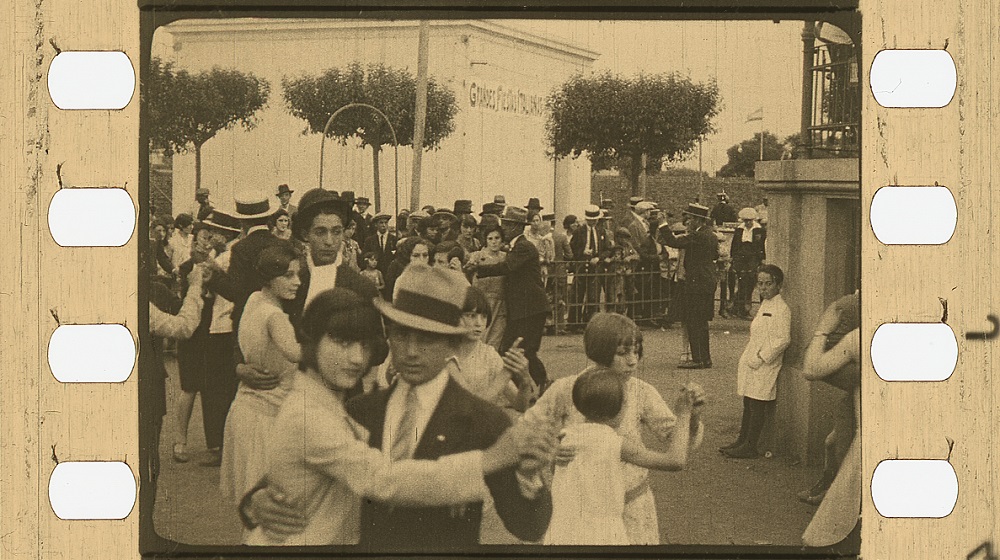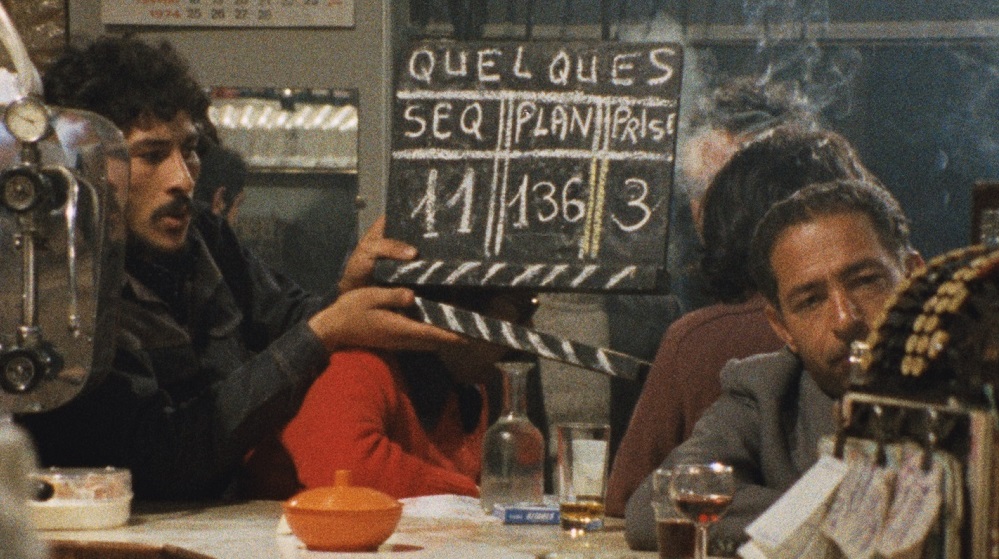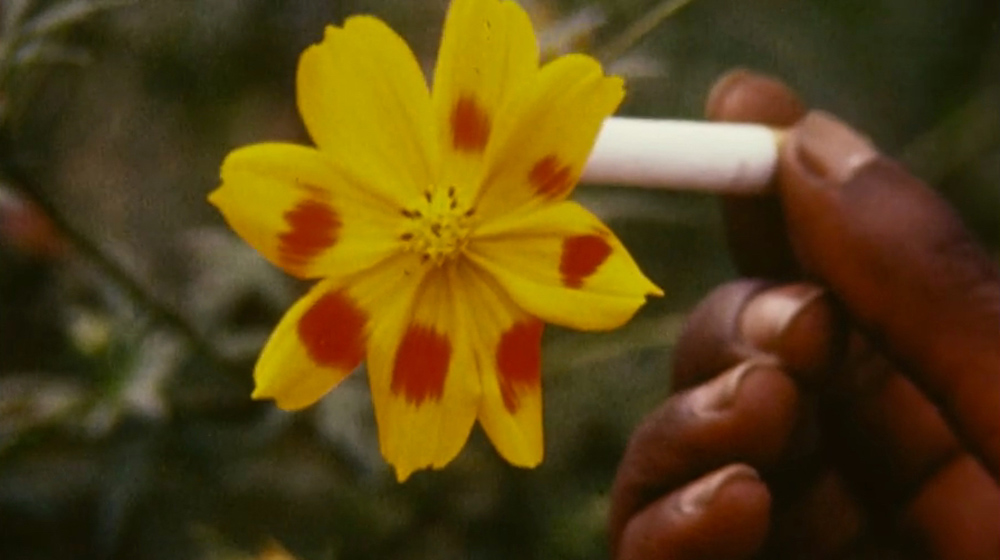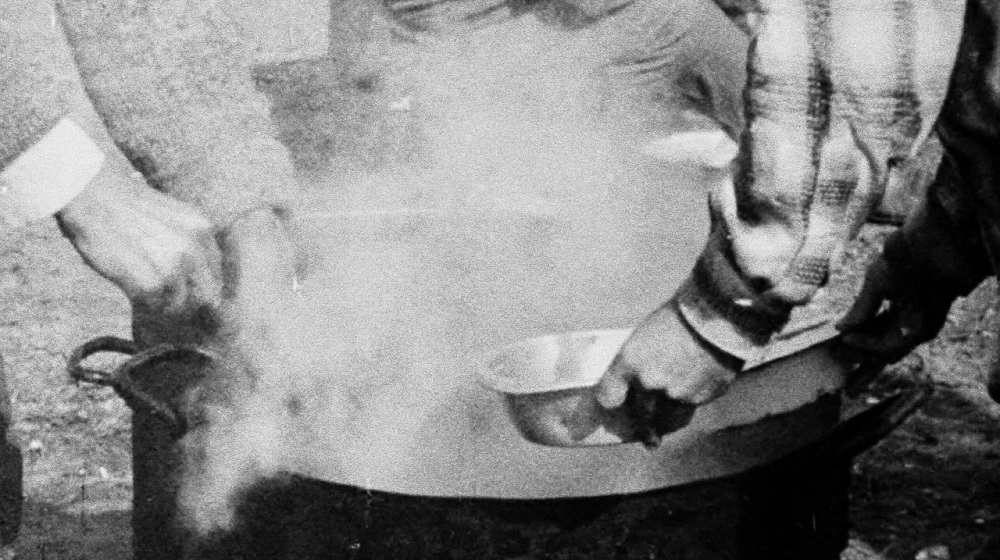The work carried out at Xcèntric to programme and promote experimental film cannot be separated from the other work carried out by all those professionals who preserve, restore and research cinematographic heritage. Recent social and technological changes such as the mass adoption of digital media and the will to revise inherited canons have highlighted the fact that the importance of working with archive material should not be taken for granted. In keeping with Xcèntric's interdisciplinary and expanded approach to programming and Elías Querejeta Zine Eskola's pedagogical model, this conference aims to collate the reflections and experiences of restorers, archivists, researchers and programmers.
Thursday 18 January
11:30 Presentation of the programme and participants Gloria Vilches, head of Xcèntric.
11:45 State of play Giovanna Fossati (Eye Filmmuseum)
Giovanna Fossati is the author of the book From Grain To Pixel: The Archival Life of Film in Transition, recently translated into Spanish, a work that has become indispensable for understanding the status of film archives in the digital age. In this inaugural talk Fossati will examine the changing landscape of film heritage discourse in the digital age, exploring aspects related to the restoration, research and reuse of film. Recognising the dynamic relationships among cultural, technical, aesthetic, and economic factors in film archival practices, this presentation will emphasise the urgent need for a more participatory and inclusive perspective on audiovisual heritage.
12:30 Conversation between Giovanna Fossati and Pablo La Parra, head of the research department at Elías Querejeta Zine Eskola.
17:30 Cine-Performance: non-aligned archives Léa Morin (Independent researcher/EQZE)
The gestures involved in editing, researching, restoring, archiving and programming films, especially when made from a militant perspective and in collectives, help us to penetrate the gaps, cracks and absences, to take care of the many spoiled narratives of cinema. We’ll discuss various projects (books, film screenings, film restorations, research) that contribute to the problematisation of the classic approaches to the history of cinema, illuminating forgotten films, reinstating essential writings on cinema and, with them, a cinematographic perspective that goes beyond the dominant geographies, reactivating the yearning for cinema and dreams of revolution that are so necessary for our societies.
19:00 Screening: De quelques évènements sans signification (1975) [Buy tickets]
The first feature film by Moroccan director Mostafa Derkaoui, located and restored at the Filmoteca de Catalunya. The session will be presented by Rosa Cardona, in charge of the restoration process.
Friday 19 January
11:30 Small cinemas and uneven preservation Carolina Cappa (independent archivist/ EQZE)
In this presentation, we’ll examine the technological and material conditions that determine cinematographic preservation, focusing on minor films or those that don’t belong to the image-commodity regime. Based on some recent preservation projects in Spain and Latin America, we’ll discuss how such conditions result in unequal access to certain cinemas. Because there’s a huge gap between films that receive funding, that are digitised or preserved photochemically and become accessible, and those minor films that remain submerged in the obscurity of archives (amateur, militant, experimental and non-commercial cinema, as well as that of poor countries). Opening up the black box of preservation, we’ll attempt to present some ideas as to why we have access to certain images but not others.
12:15 Conversations with Mnemosyne, Archon and Draco: the adventures and misadventures of a researcher in the archive Sonia García López (Universidad Carlos III de Madrid)
It’s exciting to investigate films in the archives. It allows us not only to uncover and study the details of films that are known and admired by the public but also to imagine and bring to life other potential stories of cinema, those that were never told. Reconstructing these stories means looking not only at films that have survived but also at other traces in the form of dossiers, photographs, scripts or shooting plans. However, anonymous filmmakers and "orphan" films, unknown or invisibilised, are often subjected to a dual invisibilisation: that produced by the difficulty or impossibility of accessing materials that make it possible to tell their story.
13:00 Round table with Carolina Cappa, Sonia García López and Enrique Fibla (UAB), a researcher specialising in the relationship between visual archives and historical memory.
17:30 Trouble in the Image: Conservation and Restoration of Experimental Film Mark Toscano (Academy Film Archive)
Even for the most knowledgeable cinephile, the processes and philosophies around film archiving can be unknown or arcane. When it comes to experimental cinema, this may be exponentially so. Mark Toscano is a senior film preservationist at the Academy Film Archive in Los Angeles, where he has specialized in the care, curation, and restoration of experimental cinema for twenty years. In this presentation, he will share generalities, specifics, anecdotes, exceptions, and various unusual details about his practice, extensively illustrated with imagery from his work on artist-made cinema. Topics will include grain, dirt, scratches, color, analog, digital, hand-drawn soundtracks, films shipped in food containers, and what happens when an artist processes Ektachrome while tripping on LSD.
19:00 Screening: There is Something on Your Mind. [Buy tickets]
Mark Toscano presents a program of restored experimental films at the Academy Film Archive, with the city of Los Angeles as the protagonist.
Sunday 21January
18:30 Screening: Lyric nitrate. Experiments with archive films. [Buy tickets]
To end this conference on cinematographic archives, Giovanna Fossati proposes three films from her catalogue that explore the aesthetic dimension within the degradation and decomposition of photochemical media.



